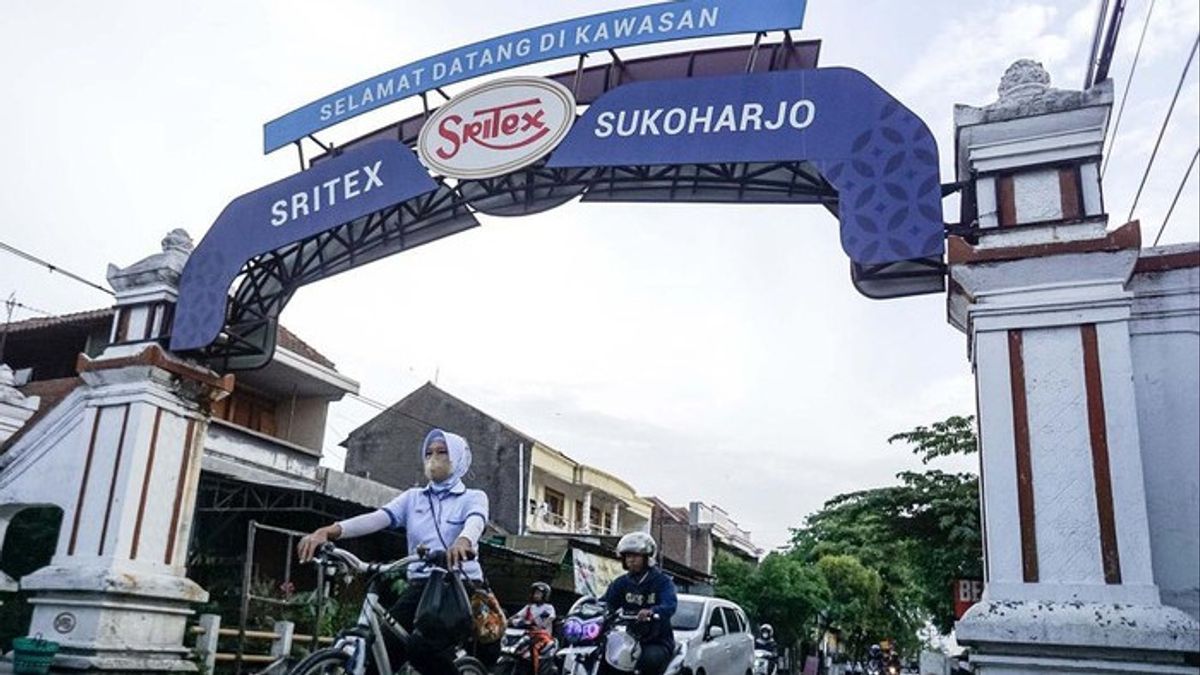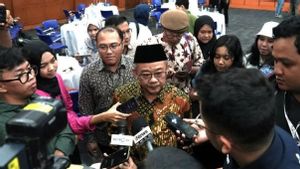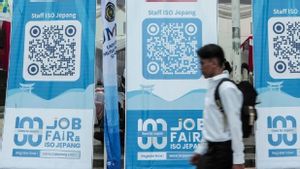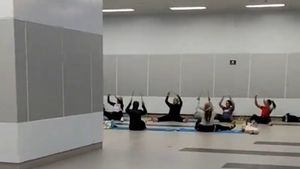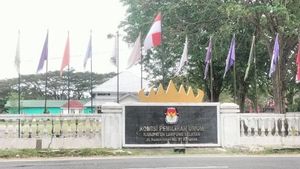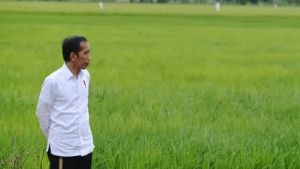JAKARTA The textile issuer of PT Sri Rejeki Isman Tbk (SRIL) or Sritex was officially declared bankrupt by the Semarang Commercial District Court (PN) on Thursday (20/24/2024). Sritex is said to have a mounting debt problem. But is that true?
Sritex's bankruptcy is contained in the decision with case number 2/pdt.Sus-Homologation/2024/PN Niaga Smg. In the decision, Sritex, PT Sinar Pantja Djaja, PT Bitratex Industries, and PT Primayudha Mandirijaya have been negligent in fulfilling their payment obligations to PT Indo Bharat Rayon, as the applicant, based on the Homologation Decision dated January 25, 2022.
"Stating that PT Sri Rejeki Isman Tbk, PT Sinar Pantja Djaja, PT Bitratex Industries, and PT Primayudha Mandirijaya are bankrupt with all their legal consequences," citing the petitum through SIPP PN Semarang, Thursday (24/10/2024).
Sritex's bankruptcy indicates that the condition of the domestic textile industry has weakened. Economic observer Yanuar Rizki assessed that Sritex was unable to face global pressure from the COVID-19 pandemic and the Russia-Ukraine war which affected the decline in textile and garment exports. This is exacerbated by the onslaught of illegal imported products entering Indonesia.
"The condition of our textile sector has weakened. This is followed by the rampant imports of illegal used clothes," said Yanuar.
Economic observer from the Bright Institute Muhammad Andri Permana explained that Sritex not only felt operational difficulties, but also felt nationally. Andri observed that the decline in the textile and textile product (TPT) industry began to be felt since 2023. This is due to rising interest rates, causing high capital costs.
Specifically, said Andri, the decline in the TPT industry was also caused by the onslaught of imported goods and the global economy, including the war of Russia and Ukraine which did not improve.
For the weakening case of the TPT industry in Indonesia, Andri said that after the COVID-19 pandemic, the country's economic recovery was actually quite good globally. Demand or demand in Indonesia is still good, while in other countries including Europe is actually very low.
The weakening demand in other countries makes it difficult for the TPT industry to increase exports. The same is felt by other textile business countries, namely China, Vietnam, Bangladesh, and India. Slowing global demand has created oversupply in China.
SEE ALSO:
In the midst of low demand for developed countries due to economic conditions that have not fully recovered, it has caused oversupply in China's domestic. They outsmarted this by making a breakthrough in exporting goods to developing countries, one of which is Indonesia, which is still at a good level after the pandemic. China managed to sell TPT industrial goods at a low price or better known as mixing.
"So China used to use important principles as long as it sold," Andriadi told VOI.
But this then backfired for the domestic TPT industry, because goods from the Bamboo Curtain country actually flooded Indonesia. The interest is getting higher, and in the end, Indonesia cannot compete with their products that are sold at very cheap prices.
Even though as a developing country, Indonesia is very dependent on the textile industry, as is Vietnam and Bangladesh. The two countries are still doing well because they don't let China enter their products in a row.
"Like when Tiktok Shop was protested some time ago, which caused traditional markets to become quiet, including Tanah Abang. Because Indonesia cannot compete," he explained.
The TPT industry is one of the labor-intensive industries that has an important contribution to the national economy. The 2022 data shows that this industry absorbs approximately 3.6 million workers and contributes 6.38 percent of GDP from the non-oil and gas sector. However, the performance of the Indonesian textile industry throughout 2022 has decreased.
Data from the Central Statistics Agency (BPS), exports of textiles and Indonesian textile products only reached 1.5 million tons, or a 17 percent decrease compared to 2021. This figure is much lower than at the beginning of the COVID-19 pandemic.
Andri explained that the TPT industry is more than just an economic support. The TPT industry is the supporter of people's income because it absorbs very large labor. The decline in the TPT industry has reduced labor absorption. The fact is that currently, said Andri, more workers in the informal sector than formal ones, causing a decrease in the number of middle classes in the last five years.
"This is what is actually not seen importantly in priority. Which industry do you want to develop?" said Andri.
"Right now, the government is focusing on downstream nickel and mining. From employment, this industry only absorbs two percent," he continued.
Under current conditions, industry needs large employment. If the provision of jobs is not feasible, the majority of the workers today are informal workers and this is insecure or unsafe because they cannot bring the community to the middle class. Industry sectors that absorb labor should be given cheaper capital costs.
In addition, domestic textiles cannot compete if illegal imports continue to enter, do not pay taxes, and politics. So it must be ensured that illegal goods must not be able to enter again. It must be confirmed from the Permendag. So this should not happen again, don't let it be," Andri concluded.
The English, Chinese, Japanese, Arabic, and French versions are automatically generated by the AI. So there may still be inaccuracies in translating, please always see Indonesian as our main language. (system supported by DigitalSiber.id)
